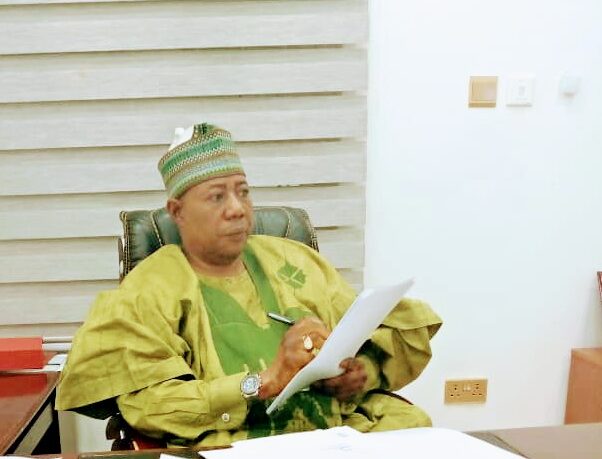In 1962, an International studies predicted that Nigeria will lead Brazil and India to join the developed world in a decade and half. At this time, there was no mention of Dubai, South Korea, Iran, Saudi Arabia and other countries now considered as oil-producing entities . The prediction was based on Nigeria’s huge oil reserve and mineral resource.
However, decades after, Brazil and India have recorded giant leap. Since then, the United Arab Emirates (UAE), Saudi Arabia, Iran and others have leapedfrog from the rear to assume significant level of development on account of oil wealth. Following the success of most oil-rich Middle East States in transforming oil wealth to tangible development, tongues have been wagging over the fate of Nigeria and whether its oil deposit is a curse.
The federal government operates joint ventures and related agreements with private oil companies in both oil and gas sectors with the aim of sustainable revenue generation, thus enhancing the economic development of the nation.
President Bola Ahmed Tinubu’s government has recognised the gravity of the situation and has taken steps to address it. The National Economic Council’s newly formed committee on Crude Oil Theft and Management led by Governor Hope Uzodimma is a positive development. However, the challenge demands more than just committees.
It is too early to say whether these initiatives will be successful in curbing oil theft. However, the government’s commitment to tackling the issue is a positive sign. If the government can make significant progress in reducing oil theft, it could boost Nigeria’s oil production and help to improve the country’s finances.
I would like to, once again, suggest a few action steps that can help tackle the embarrassing situation. I suggest that the Renewed Hope Agenda should cross-examine through investigation the loss of over $60 billion revenue due to inflated cash calls by the Nigerian National Petroleum Company Limited joint venture agreements. It should conduct a thorough review of all the NNPCL operations to determine income and cash call cost to each partner, especially the federation and also whether due process and delligence were followed.
There is also the need to trengthen security. Bolstering security around pipelines and oil facilities is crucial. This includes deploying more personnel, investing in advanced surveillance technology, and fostering intelligence-driven operations.
The government should tackle corruption: Endemic corruption within the oil sector facilitates theft. Investigating and prosecuting corrupt officials, regardless of rank, is essential.
Building trust and cooperation with oil-producing communities is equally vital. Providing alternative livelihoods, investing in local development projects, and addressing environmental concerns can help break the cycle of theft. The government must working with local communities to develop alternative livelihoods for people who are currently involved in oil theft.
Another bold step is for government to improve transparency. Implementing robust transparency measures in oil revenue management and expenditure is crucial to build public trust and deter theft.
The legal framework also needs to be strengthened to deter and punish oil theft effectively. This includes stiffer penalties for perpetrators, improved witness protection, and streamlined prosecution processes. This calks for international cooperation. Collaborating with neighboring countries and international partners to combat cross-border oil smuggling and address the demand for stolen oil is essential.
Improving oil spill cleanup is also crucial. The government has invested in new oil spill cleanup equipment and has also trained more workers in oil spill cleanup techniques.
Tinubu’s government must act decisively and swiftly. The longer oil theft continues, the deeper the wounds it inflicts on Nigeria’s economy and society. Implementing these measures requires political will, unwavering commitment, and a genuine desire to break free from the shackles of this pervasive crime.
Nigerians deserve a future where their oil wealth translates into tangible benefits, not lining the pockets of criminals. It is time to turn the tide on oil theft and unlock the true potential of this vital sector for the betterment of all Nigerians.
Needless to emphasise that Nigeria’s oil sector, once a beacon of prosperity, is now hemorrhaging billions due to rampant oil theft. This illegal activity, estimated to cost the country 250,000 barrels per day, cripples the economy, hinders development and fuels social unrest.
Oil and gas are critical to Nigeria’s economic and social performance. Nigeria’s dependence on petroleum is much greater than that of many other major producing countries. Oil alone accounts for 40 percent of the country’s GDP, 70 percent of budget revenues, and 95 percent of foreign exchange earnings.
Nigeria has been a member of OPEC since 1971. OPEC is a cartel of oil-producing countries that sets production quotas for its members. Nigeria’s quota has fluctuated over the years, but it is currently around 1.8 million barrels per day (bpd). The country has a long history of falling short of its OPEC oil production quotas. In 2022, for example, Nigeria’s average oil production was 1.2 million bpd, well below its quota of 1.8 million bpd. There are a number of reasons for this shortfall.
This is due to a number of factors, including oil theft, pipeline vandalism, and militant activity in the Niger Delta. Oil theft is a major problem in Nigeria, with an estimated 250,000 barrels of oil stolen per day. This oil theft costs Nigeria billions of dollars in revenue each year.
The consequences are dire. Lost revenue translates to fewer hospitals, schools, and essential services, particularly in the neglected oil-producing regions. It weakens the national currency, stokes inflation, and hampers investments. The stolen oil fuels illegal activities, perpetuating a vicious cycle of poverty and violence.
Make no mistake, Oil theft is a complex problem with no easy solutions. The thieves are often well-organized and operate in remote areas. This makes it difficult for the government to catch them. The government has taken a number of steps to combat oil theft, such as increasing security around pipelines and improving oil spill cleanup. However, these measures have had limited success.
A wise man once said ‘be careful who you let on your ship because some people will sink the whole ship just because they can’t be the captain’. President Tinubu must be mindful of those he is engaging to combat oil thieves in a country where there is too much connivance.
As I conclude let me reiterate unequivocally here that oil theft is not just an economic issue; it is a moral imperative. The future of Nigeria depends on it. As a forensic expert in the oil and gas industry, I am fully aware that to effectively combat oil theft under his Renewed Hope Agenda, the Tinubu administration must make sure the difference is clear in terms of world class ICT in managing the oil industry from drilling, production, to import and export.
With all the necessary ICT softwares in place and other related surveillance systems adopted, these areas can be monitored directly as it is done in Russia, Saudi Arabia, Venezuela and other advanced oil producing countries. Their breakthrough came through efficient monitoring the affairs of their oil sectors, leading to total elimination of corrupt cabals in the oil sector.



